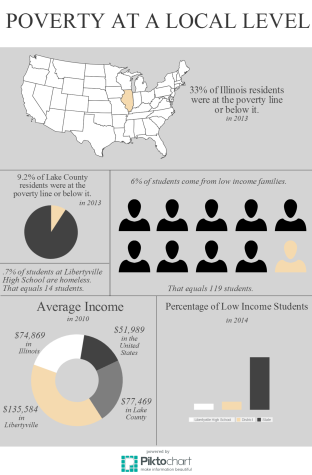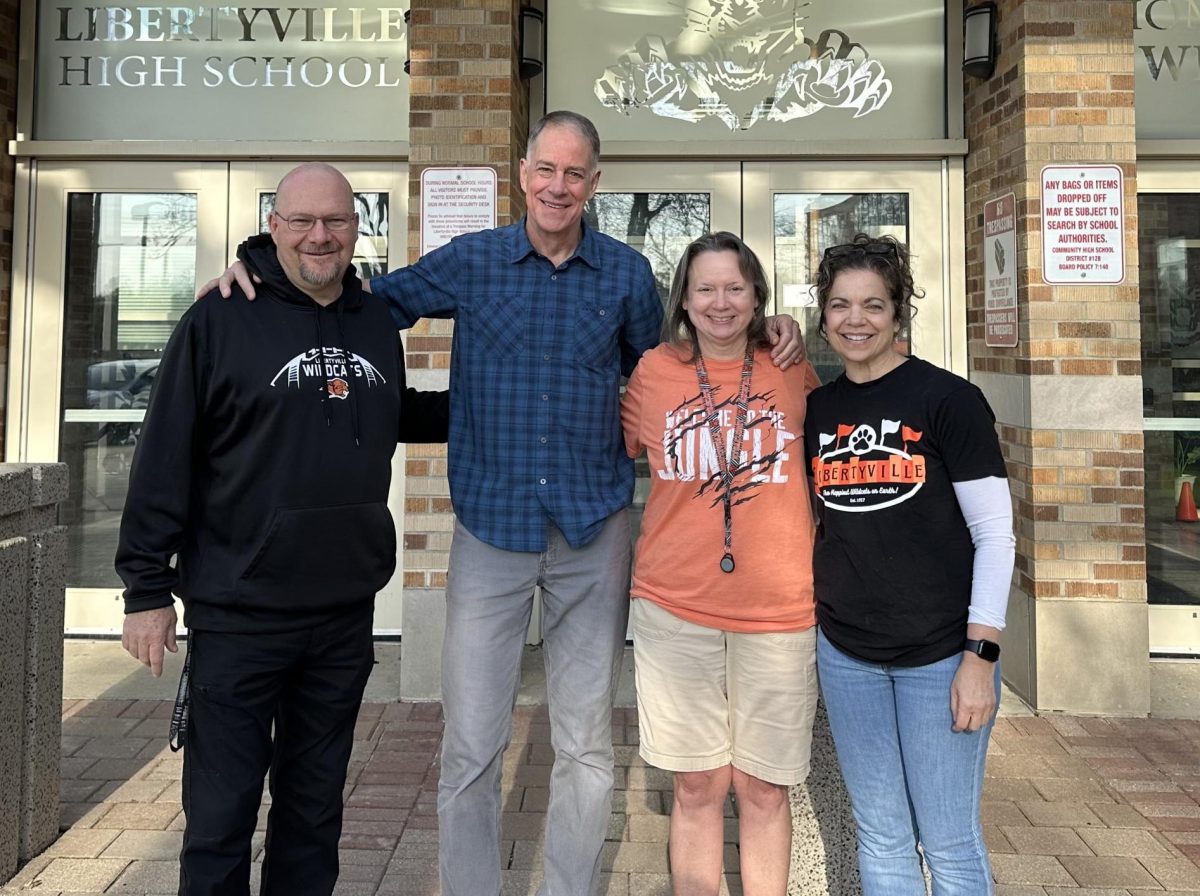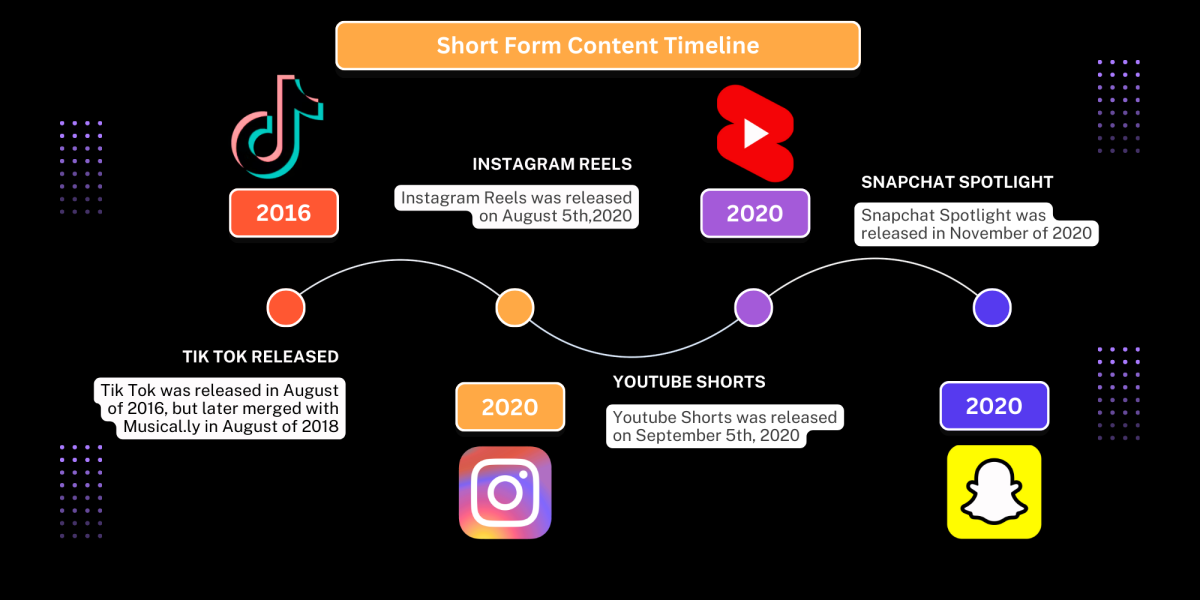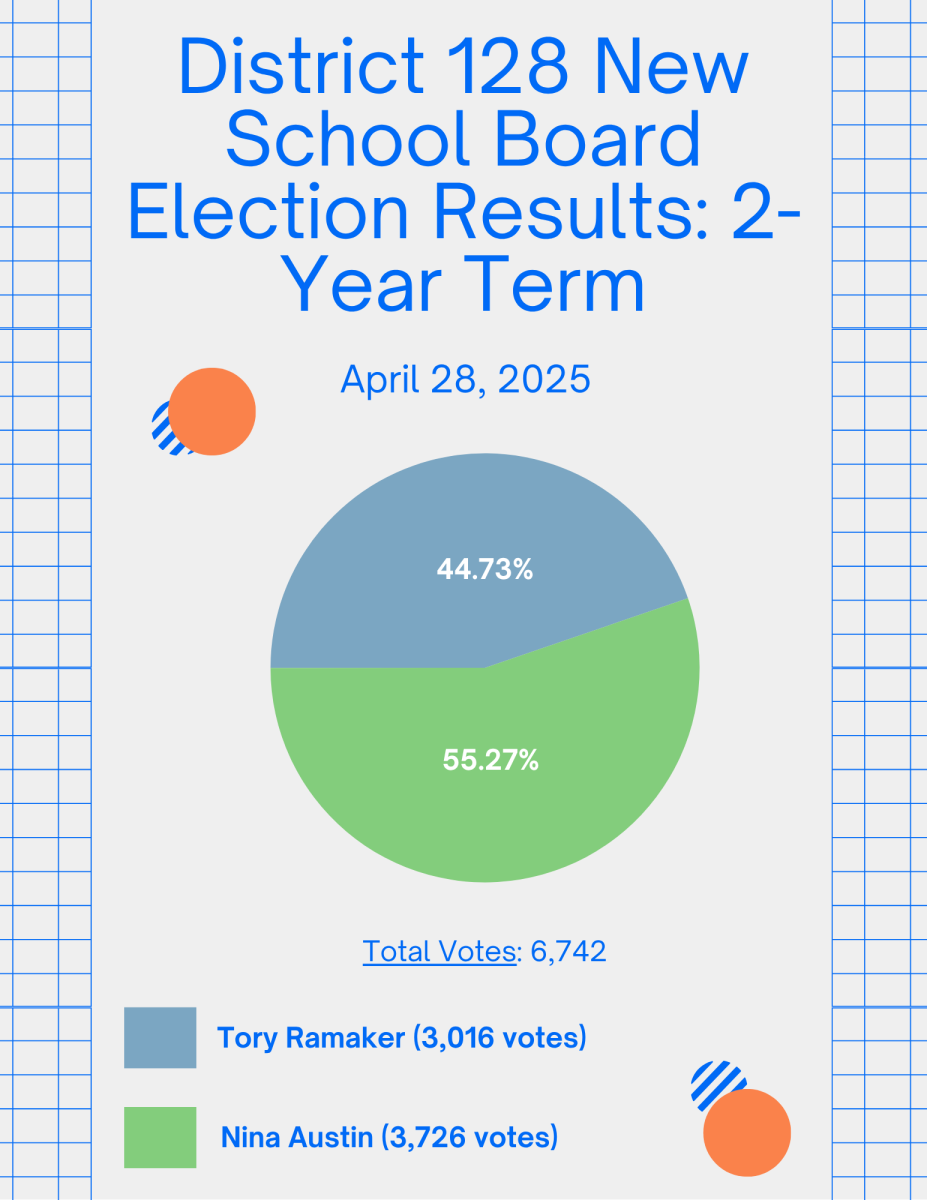If a visitor walked through the hallways of LHS, they would be impressed by the wealth of this district, with its top-grade teachers and expensive facilities. Everyone seems to blend into one mold and it’s easy to forget that not all school districts are the same. In a community as privileged as Libertyville, students often fail to realize that not everyone has the same life as them, and that everyone’s experiences are different and each compile into a unique story.
 The word “poverty” is not a derogatory term; it is simply a classification the government uses to figure out who they can help. The U.S. population is sorted into poverty thresholds. These thresholds are dollar amounts used to determine a person’s status. Thresholds are determined by how many blood relatives are in the family and by the amount of income the family will need to spend on food. If the family’s income is less than the threshold determined for that family, then the family is in poverty.
The word “poverty” is not a derogatory term; it is simply a classification the government uses to figure out who they can help. The U.S. population is sorted into poverty thresholds. These thresholds are dollar amounts used to determine a person’s status. Thresholds are determined by how many blood relatives are in the family and by the amount of income the family will need to spend on food. If the family’s income is less than the threshold determined for that family, then the family is in poverty.
Poverty exists because of numerous causes, and with the recession in 2007, it has been harder for people to get back on their feet. According to an article from The Huffington Post, after the recession, the average household income declined by $2,700 from 2007 to 2009. It became increasingly hard to find jobs and jobseekers outnumbered job openings by a ratio of 5 to 1.
The Federal Census Bureau conducted a study from 2013 that showed that for every 1 percentage point rise in the unemployment rate in America, there is a .5 percent increase in the poverty rate. Even though it is 2015 and the unemployment rate has stabilized, some Americans are still struggling to get back onto their feet.
Health problems also lead to greater economic hardship because they limit a person’s ability to work, and health care costs, even if the individual is insured, can be extremely expensive. Another study conducted by the Federal Census Bureau demonstrated that medical problems caused 62 percent of all personal bankruptcies in the United States in 2007, and three quarters of those filers had medical insurance at the start of their illness.
Also in 2007, the average income in the United States was reported to be $51,939, whereas in 2013, the average income in Lake County was reported to be $74,869; in Libertyville, it was reported to be $135,584. That’s a difference of almost $85,000 when comparing the national level to our suburb, and it paints a picture of the type of community that we live in.
“I think we assume that everybody’s life is very similar to ours because we all go to school here at the same place, we sit in the same classes. I think sometimes we forget that everyone has a story, everyone has experiences that they have had that make them different,” Principal Dr. Marina Scott stated.
In 2013, it was recorded that 49.5 million Americans or 14.5% of the population fell below the poverty threshold. Recently, there has been a national 3.1 percent increase in poverty since 2007, and the increase can be seen throughout the Libertyville area as well as in District 128.
In 2010, according to the state’s School Report Card for LHS, only 4 percent of students came from low-income families, whereas in 2014, that number rose to 6 percent. Since 2,028 students were enrolled at LHS in 2014, this statistic rounds out to 119 students coming from low-income families.
To once again bring the statistics back out to a broader level, 8 percent of kids in the district come from low-income families, while 52 percent of the kids in the state come from low-income families.
LHS prides itself in its ability to help students who ask for it while handling the matter with respect and dignity.
“It’s a very embarrassing, very uncomfortable situation for students who might be in that position, so we treat each case with great respect,” the principal’s secretary Sandra Kruckman shared.
One main way that LHS helps out students who ask is through the free and reduced lunch program. However, LHS automatically gives students free meals instead of reduced ones if students qualify for the program. The school allows parents to fill out a form for the lunch program and if a student qualifies, they receive a free breakfast and lunch. To qualify, a family must fall into a poverty threshold based on their family’s income and size.
Many kids aren’t aware of these programs.
“I’ve told a couple people that I get my food for free and they are like, ‘I didn’t know you could do that, like how do you get that kind of stuff?’ I think that since this is such a wealthy community, they are kind of surprised that people who can’t support themselves are going to school” shared a junior at LHS who takes part in the programs and requested to be anonymous.
The program operates through a student’s ID so anytime they are buying lunch, no other students would ever be able to tell that they are part of this group. Students in the program get a main entrée and drink for each meal.
LHS also tries to supply students in need with other necessities by paying for their gym uniforms, caps, gowns, books, or other supplies.
Additionally, the school has a program called “scholarship books,” which supplies students with the books they need for their English classes and the school makes sure to give the students who are part of the program their books at the same time as the students who paid for them.
The school receives its funds for these types of aid through programs like the WildCat Account and D128 Foundation. The district gives LHS funds to put into the WildCat account to be earmarked for students who need supplies, and the D128 Foundation helps raise money through fundraising that can also be used to help students. To donate to the foundation, you can log onto www.d128foundation.org; all donations are used to enrich the educational programs at D128 schools, including students in need.
“I think what helps us here is that students have good relations with teachers and counselors,” shared Dr. Scott.
Social workers and counselors are consistently there to help low-income students and are always available if ever a student needs to talk or wants to request help.
“The programs are really nice, it’s a lot less stress. I get early release just so I can be home because my mom is working and my dad is working, so I’m home for when my younger siblings get home, so not having to worry about spending more of my parents’ money each day on food and books is really nice,” shared the junior mentioned earlier.













